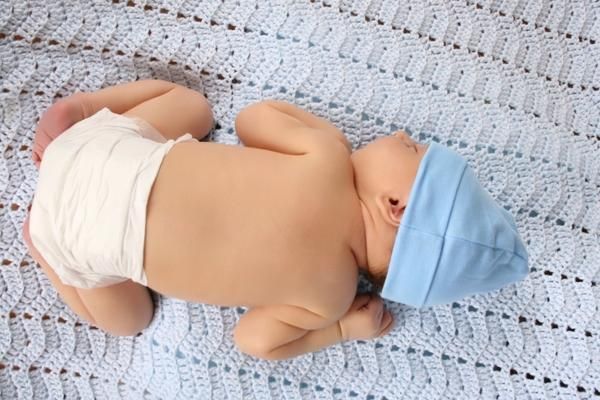'Miracle Cure' Beliefs May Prolong Terminally-Ill Children's Suffering, Researchers Say

Some terminally ill children experience unnecessary treatment and prolonged suffering because their parents believe they will experience a "miracle cure," researchers in England argue.
Among cases at the researchers' hospital in which care for a critically ill child was continued despite recommendations from doctors, 65 percent involved the parents' belief in a miracle cure.
The support that religious beliefs provide to families can be vital during difficult times, according to the researchers. "Belief in religion is an integral part of humanity, and of virtually every culture," they write in the Aug. 13 issue of the Journal of Medical Ethics.
However, "we are increasingly concerned that deeply held belief in religion can lead to children being potentially subjected to burdensome care in expectation of 'miraculous' intervention," the researchers said.
In these cases, the parents' beliefs may need to be challenged if they are not in the best interest of the child, the researchers say.
The researchers said changes should be made so these cases can be taken to court more rapidly. At their hospital, it was typical for doctors and parents to discuss the options for a child's care for months without reaching an agreement, before the input of the court was sought.
These situations — in which belief in miracles leads to a disagreement between parents and doctors over the best approach for a child's care — are never easy, but occur rarely, said Cynda Rushton, a specialist in nursing ethics at the Johns Hopkins Berman Institute of Bioethics. It is not certain whether a small minority of cases should determine policy for all critically ill children, Rushton said.
Sign up for the Live Science daily newsletter now
Get the world’s most fascinating discoveries delivered straight to your inbox.
"I wouldn’t want to see a trend toward taking all cases where there are disputes about treatment based on religious values to court," Rushton said. In these cases, it's important for the views of parents and clinicians to be given equal standing, Rushton said.
"It’s a process, and it takes time to evolve and fully understand every perspective and rationale. The process should take seriously the implications of overruling parents' deeply held religious viewpoints, and include sufficient safeguards that are fair and balanced," Rushton said.
Belief in miracles
In the study, researchers at the Paediatric and Neonatal Intensive Care Unit at Great Ormond Street Hospital for Children in London reviewed about 200 cases at their hospital in which it was recommended that ICU treatment for a child be withdrawn or limited.
In 186 of the cases, an agreement was reached between the parents and doctors about withdrawing aggressive treatment.
But in 17 cases, extended discussions failed to resolve differences of opinion between the doctors and parents over the best way to continue to care. In 11 of these cases (65 percent), families said they expected a miraculous and complete cure in spite of the medical evidence to the contrary. Ultimately, intensive care was continued for five of these children, four of whom eventually died, and one of whom survived with profound disabilities, the researchers said.
"The use of religious teachings to perpetuate a situation that appears futile, and which may result in distress to the child, needs to be questioned," the researchers said.
An example of such an extreme case would be continuing full intensive care for a child with anencephaly, a condition in which a child is born without large part of the brain and skull. The condition almost always results in death shortly after birth, according to the Centers for Disease Control and Prevention.
Support for parents and doctors
Recent studies show that beliefs in miracles are a driving factor in cases of prolonged treatment at the end of life, said Holly Prigerson, director of the Center for Psychosocial Epidemiology and Outcomes Research at Dana-Farber Cancer Institute in Boston. "Some patients feel like they are betraying their faith to withdraw life support," said Prigerson, who has conducted studies of adults with terminal cancer.
The best way to resolve these cases is not known, but studies show that patients who have support from hospital chaplains receive less aggressive, life-prolonging care, Prigerson said.
The more that chaplains are involved in a case, "the better able religious patients may be to accept the limits of modern medicine, and to make choices that are more aligned with a realistic view of what medicine can and can't do," Prigerson said.
In contrast, patients who receive spiritual support from their religious communities are more likely to continue aggressive care at the end of life, Prigerson said.
Programs that educate members of the religious community on the limits of modern medicine may help resolve these situations, Prigerson said.
Rushtonsaid that doctors and nurses often experience moral distress when they perceive they are contributing to their patients' suffering, and may need support systems to address their feelings in these cases as well.
Pass it on: Cases in which belief in miracles contributes to prolonged and unnecessary care of children are never easy, but taking all these cases to court may not be the answer.
This story was provided by MyHealthNewsDaily, a sister site to LiveScience. Follow Rachael Rettner on Twitter @RachaelRettner, or MyHealthNewsDaily @MyHealth_MHND. We're also on Facebook & Google+.

Rachael is a Live Science contributor, and was a former channel editor and senior writer for Live Science between 2010 and 2022. She has a master's degree in journalism from New York University's Science, Health and Environmental Reporting Program. She also holds a B.S. in molecular biology and an M.S. in biology from the University of California, San Diego. Her work has appeared in Scienceline, The Washington Post and Scientific American.










